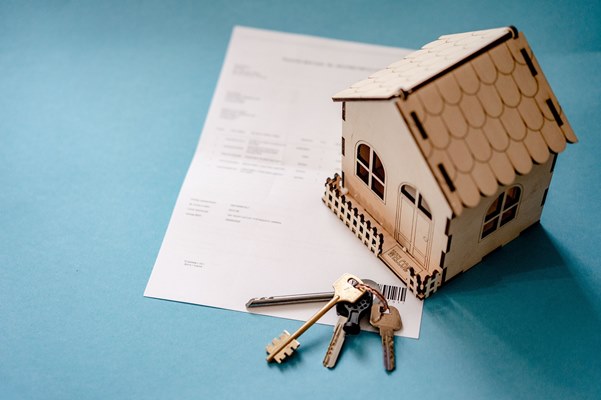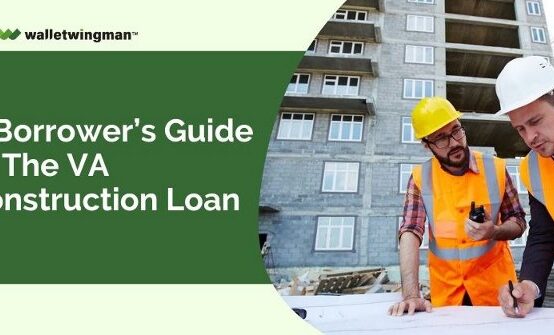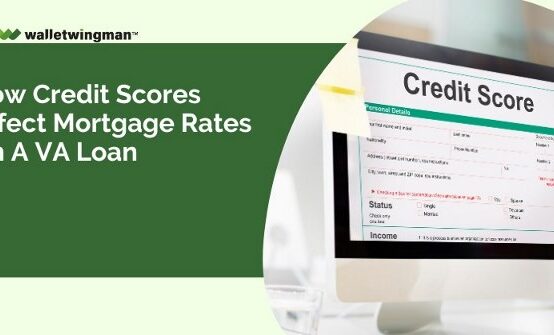When you use a VA loan to buy a house, you have the option to make an earnest money deposit when submitting your offer to the seller. Emphasis on the word “option.”
Earnest money deposits are entirely optional when using a VA loan. The Department of Veterans Affairs does not require earnest money for VA-backed home loans. Even so, a deposit could help you get your offer accepted by the seller.
In this article, you’ll learn how the earnest money deposit works and how it relates to your VA loan when purchasing a home.
VA Home Loan Program Overview

VA loans are a particular type of mortgage loan that receive federal backing through the U.S. Department of Veterans Affairs. They offer veterans, active-duty service members, and eligible surviving spouses a zero-down-payment mortgage option with flexible VA loan credit requirements.
This program essentially eliminates one of the biggest obstacles to homeownership: the down payment. Eligible borrowers can finance 100% of the purchase price using a VA loan.
This program also offers relatively flexible qualification criteria for borrowers. Due to the government guarantee given to mortgage lenders, it’s arguably one of the easiest types of home loans to qualify for.
VA Loan Eligibility

VA loan eligibility is the set of requirements that you need to meet to get a mortgage loan guaranteed by the Department of Veterans Affairs. The VA loan program is specifically dedicated to housing assistance for eligible veterans, active-duty military members, Reserve members, or the National Guard, and their surviving spouses.
Knowing your VA loan eligibility is tremendously important if you want to enjoy the benefits offered through this unique program.
Here’s a comprehensive overview of VA loan eligibility criteria:
- Military Service Requirements: To ensure that the VA loan requirement is met, you first must secure the Certificate of Eligibility (COE) from the Department of Veterans Affairs. To obtain a COE, you must meet particular military service requirements, which vary depending on your military status.
- Veterans: Such service members often have to meet the criterion of collective service duration, which usually ranges from 90 days to 24 months, depending on the service timeframe.
- Active-Duty Service Members: Active-duty service members qualify soon after serving for at least 90 continuous service days.
- Reservists and National Guard Members: Reservists and National Guard staff become eligible after at least six years of service in the Selected Reserve.
- Eligible Surviving Spouses: The surviving spouses will also be entitled to VA loans if a service member dies while on the mission or due to a disability caused by military service.
- Character of Service: The candidates should meet the minimum service conditions in addition to being discharged from military service under honorable conditions.
- Credit and Income Requirements: Although the VA does not stipulate the minimum credit score a VA loan applicant should have, lenders have their own credit requirements, especially for VA mortgages. You should present proof that you have a credible credit history and a sustainable income to finance the mortgage.
- Occupancy Requirements: VA loans are made for primary homeownership. Therefore, you must verify that you will occupy the property as your primary residence within a reasonable time frame after closing. Furthermore, you should fulfill an appraisal to ensure that the home meets the criteria of the VA Loan property requirements.
- Loan Limits: VA loan eligibility is bound to specific loan limits, which are dependent on the county and the Federal Housing Finance Agency (FHFA). These limitations, therefore, cap what you can borrow without a down payment.
- Funding Fee: Although not a requirement for eligibility, it is good for you to be aware of the VA funding fee, a one-time fee charged by the VA to support the loan program costs. The funding fee depends on numerous factors, including whether it is an active duty, reserve or veteran status, down payment amount, first-time VA loan, or re-use of the benefit.
It is important to remember that meeting the basic eligibility requirements does not automatically mean being approved for a VA loan. You must still meet the borrower’s underwriting standards and submit the required papers to show that you are eligible for the loan and that you are creditworthy.
Moreover, if you plan to take a VA loan for investment property, you must fulfill a few other requirements. For instance, you can’t buy commercial property. Instead, you can buy a multifamily house with one to four units that can be rented.
Furthermore, if you are planning to get a VA loan for land, you must ensure you have plans for building a family home on the land you buy, or the land should already have a home.
The Earnest Money Deposit

Most home buyers in the U.S. make an earnest money deposit when submitting an offer on a house. But it’s a custom and a tradition rather than a legal requirement.
The earnest money deposit represents a financial commitment to the deal. It demonstrates the buyer’s serious intent to purchase a property and is usually submitted with the purchase offer.
Earnest money deposits are held in escrow by a neutral third party until the sale is finalized. If the deal goes right, the funds will be put in to the down payment or closing costs. So it becomes an investment in the property.
Nevertheless, if the buyer backs out of the deal without a valid reason, they might end up forfeiting the deposit. This is why some buyers include real estate contract contingencies that protect their earnest money VA loan in scenarios that are beyond their control.
We will discuss these contingencies in more detail in a moment. But first, let’s examine what the Department of Veterans Affairs says about earnest money deposits with VA loans.
They’re 100% Optional for VA Loans

As mentioned above, the earnest money deposit is entirely optional when using a VA loan to buy a house. They are not required or mandatory. This provides buyers more flexibility when it comes to structuring their offer.
The Department of Veterans Affairs issues a handbook known as the “VA Home Loan Guaranty Buyer’s Guide.” This 51-page PDF guide (which is available online) explains to home buyers how the VA loan program works.
However, this guide only mentions earnest money deposits in two places. The first reference is where the handbook explains some of the one-time expenses associated with a VA mortgage loan.
To quote that portion:
“Earnest Money Deposit – (Optional) This is a cash deposit used to hold a home you are bidding on. It shows that you are serious about purchasing that home.”
They revisit this subject when explaining the VA loan escape clause that home buyers can use in a low-appraisal situation.
As the buyer’s guide states:
“Remember to include in your sales contract, a contingency (called an ‘escape clause’) which allows you to not incur any penalty by forfeiture of earnest money or can void the contract if the contract purchase price or cost exceeds the reasonable value of the property established by the Department of Veterans Affairs.”
Understanding the ‘Escape Clause’
We explored the escape clause in a previous blog post about home appraisals with VA loans. So be sure to check out that article if you’d like to learn more on the subject.
Here’s the short version:
You can think of the VA financing contingency (escape clause) as a safety net for your VA loan earnest money. If the appraiser appraises the house lower than the agreed-upon purchase price, you can walk away without losing that deposit. It’s your “get out of the deal” card if the value doesn’t match up.
This clause is required for all VA home purchase loans. It’s designed to protect borrowers (primarily military members and veterans) from financial losses due to factors that are beyond their control.
The Benefits of Making a Deposit
In a competitive real estate market, an earnest money deposit could make the difference between having your offer accepted or having the home slip through your fingers. So consider it carefully.
In an active market, it’s fairly common for sellers to receive several offers for their homes. Sometimes, these offers can stack up within a few days of the property coming onto the market.
In a competitive scenario like this, home buyers must do everything they can to make their offers stand out. Earnest money deposit is one way to accomplish that goal. It shows the seller that you are sincere about buying their property and invested in the deal.
If you combine an earnest money deposit with a strong offer and a pre-approval letter from your mortgage lender, you could greatly increase your chance of success.
On the other hand, if you skip the earnest money deposit entirely, you’re giving the seller a reason to reject your offer—or at least to put others ahead of it. This is true when using a VA loan or any other type of mortgage program.
In summary: VA home loans do not require borrowers to make an earnest money deposit. They do, however, require an escape clause that protects your (optional) deposit in the case of a low appraisal. Though it’s not required for a VA loan, an earnest money deposit can give you an added advantage in the real estate market.


 A Borrower’s Guide to the VA Construction Loan
A Borrower’s Guide to the VA Construction Loan  How to Buy a Condo Unit with a VA Mortgage Loan
How to Buy a Condo Unit with a VA Mortgage Loan  How Credit Scores Affect Mortgage Rates on a VA Loan
How Credit Scores Affect Mortgage Rates on a VA Loan  How Much Can I Borrow When Using a VA Loan to Buy a House?
How Much Can I Borrow When Using a VA Loan to Buy a House?  The Pros and Cons of 15-Year vs 30-year VA loans
The Pros and Cons of 15-Year vs 30-year VA loans  10 Important Quotes from the Official VA Loan Buyer’s Guide
10 Important Quotes from the Official VA Loan Buyer’s Guide 